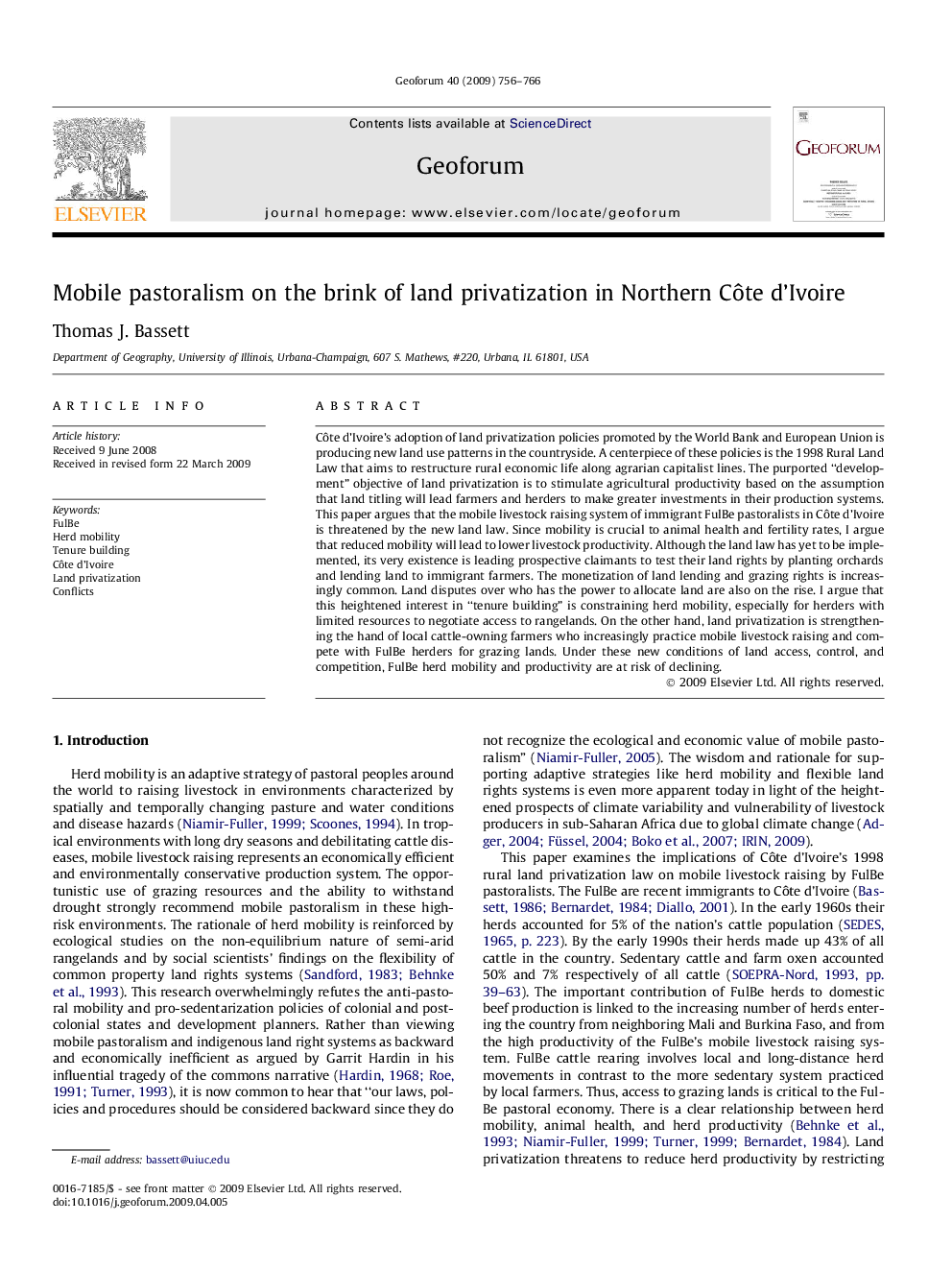| Article ID | Journal | Published Year | Pages | File Type |
|---|---|---|---|---|
| 5074810 | Geoforum | 2009 | 11 Pages |
Abstract
Côte d'Ivoire's adoption of land privatization policies promoted by the World Bank and European Union is producing new land use patterns in the countryside. A centerpiece of these policies is the 1998 Rural Land Law that aims to restructure rural economic life along agrarian capitalist lines. The purported “development” objective of land privatization is to stimulate agricultural productivity based on the assumption that land titling will lead farmers and herders to make greater investments in their production systems. This paper argues that the mobile livestock raising system of immigrant FulBe pastoralists in Côte d'Ivoire is threatened by the new land law. Since mobility is crucial to animal health and fertility rates, I argue that reduced mobility will lead to lower livestock productivity. Although the land law has yet to be implemented, its very existence is leading prospective claimants to test their land rights by planting orchards and lending land to immigrant farmers. The monetization of land lending and grazing rights is increasingly common. Land disputes over who has the power to allocate land are also on the rise. I argue that this heightened interest in “tenure building” is constraining herd mobility, especially for herders with limited resources to negotiate access to rangelands. On the other hand, land privatization is strengthening the hand of local cattle-owning farmers who increasingly practice mobile livestock raising and compete with FulBe herders for grazing lands. Under these new conditions of land access, control, and competition, FulBe herd mobility and productivity are at risk of declining.
Related Topics
Social Sciences and Humanities
Economics, Econometrics and Finance
Economics and Econometrics
Authors
Thomas J. Bassett,
